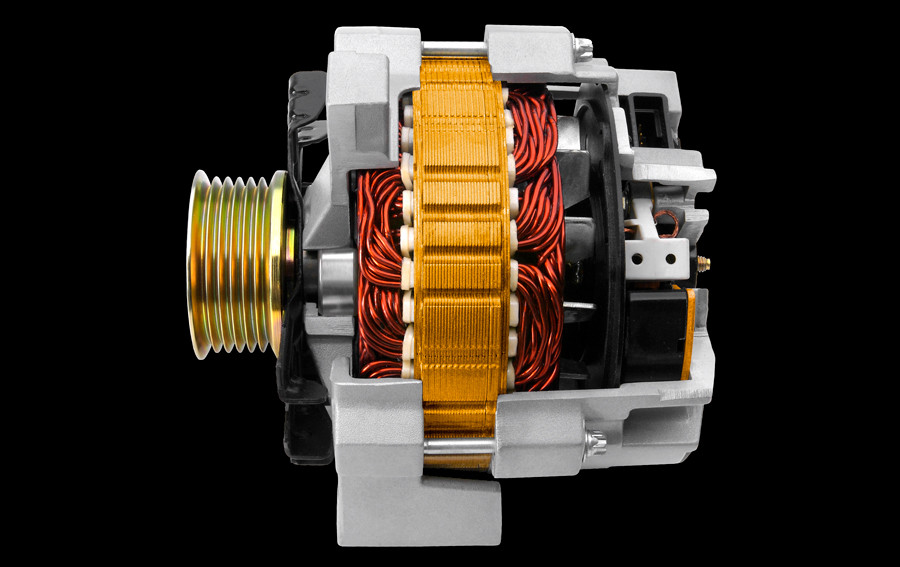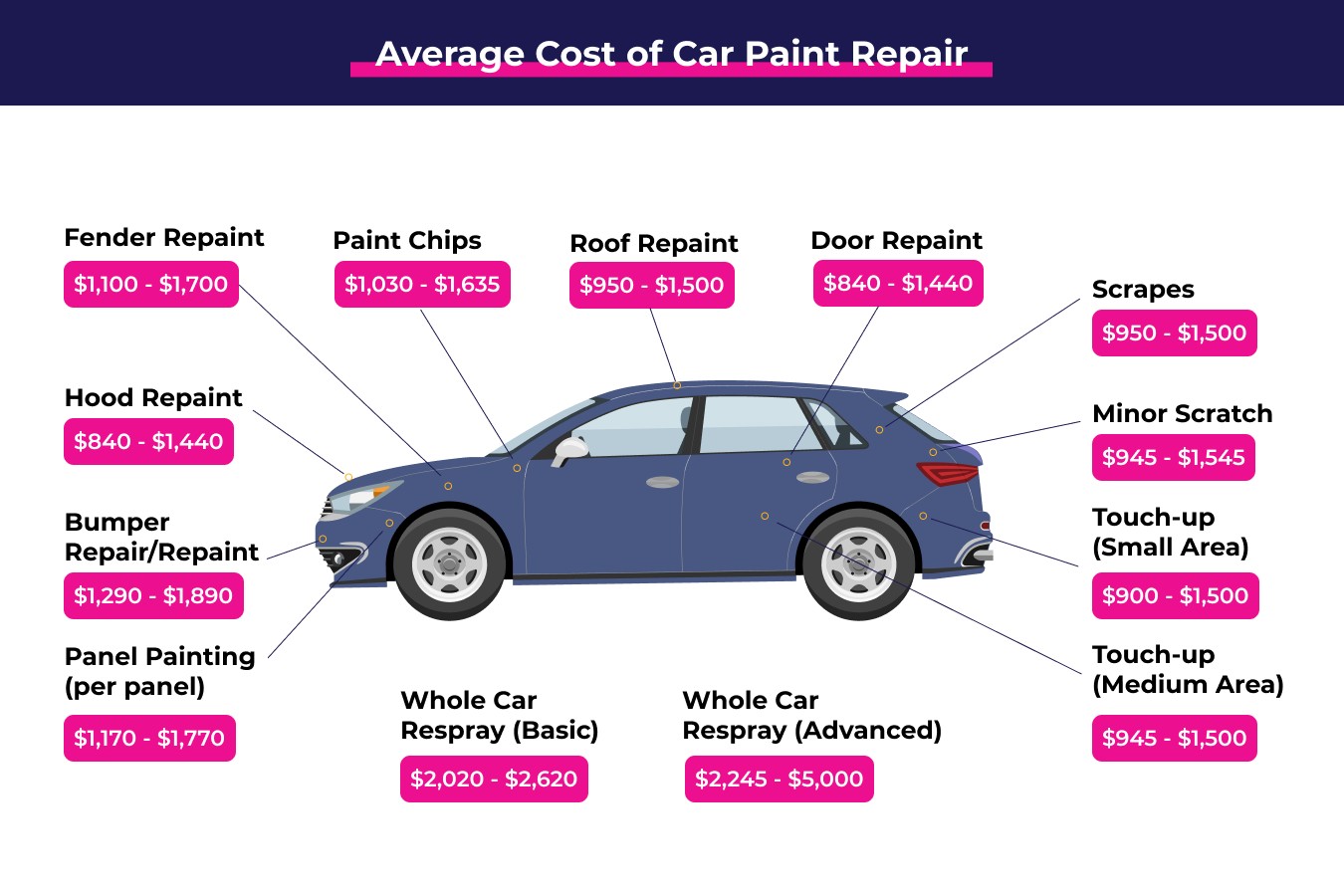How Much Does It Cost to Fix Alternator in Car? Expert Guide

Are you experiencing electrical issues in your car and suspect a faulty alternator? At CARDIAGTECH.NET, we understand the importance of a properly functioning alternator for your vehicle’s performance. This comprehensive guide breaks down the costs associated with alternator repair, helping you make informed decisions and potentially saving you money on auto repairs by choosing the right tools. BMW Diagnostic Near Me
1. What is the Average Cost to Fix an Alternator?
The average cost to fix an alternator in a car typically ranges from $300 to $800, including parts and labor. However, this price can vary significantly based on several factors, such as the car’s make and model, the type of alternator required, and the labor rates in your area.
1.1. Factors Influencing the Cost of Alternator Repair
Several elements play a crucial role in determining the overall cost of alternator repair:
- Vehicle Make and Model: Luxury or high-performance vehicles often have more expensive alternators and complex systems, leading to higher repair costs.
- Type of Alternator: New, remanufactured, or used alternators have different price points. New alternators are the most expensive but offer the best reliability, while remanufactured or used options are more affordable but may have a shorter lifespan.
- Labor Costs: Labor rates vary widely depending on the mechanic’s experience, the shop’s location, and the complexity of the repair. Dealerships typically charge more than independent repair shops.
- Additional Repairs: Sometimes, alternator failure can damage other components, such as the battery or wiring. These additional repairs will add to the overall cost.
2. Alternator Replacement Cost Breakdown
To provide a clearer picture of the expenses involved, let’s break down the costs associated with alternator replacement:
- Alternator Price:
- New Alternator: $200 – $500+
- Remanufactured Alternator: $150 – $350
- Used Alternator: $50 – $200
- Labor Costs: $100 – $300+
2.1. Detailed Look at Alternator Prices
The cost of the alternator itself is a significant portion of the total repair expense. Here’s a closer look at the different types of alternators and their price ranges:
| Type of Alternator | Price Range | Pros | Cons |
|---|---|---|---|
| New Alternator | $200 – $500+ | Highest reliability, longer lifespan, typically comes with a warranty | Most expensive option |
| Remanufactured Alternator | $150 – $350 | More affordable than new, often comes with a warranty | May not last as long as a new alternator, potential for defects |
| Used Alternator | $50 – $200 | Least expensive option | Highest risk of failure, no warranty, lifespan is unpredictable |
According to a study by the University of Michigan Transportation Research Institute, using remanufactured parts can save consumers an average of 30% compared to using new parts, without significantly compromising reliability ([Source: UMTRI, 2021]).
2.2. Understanding Labor Costs for Alternator Replacement
Labor costs can vary significantly based on the complexity of the job and the shop’s hourly rate. Replacing an alternator typically takes between 1 to 3 hours of labor.
- Factors Affecting Labor Costs:
- Vehicle Accessibility: Some vehicles have alternators that are difficult to reach, requiring more time and effort to replace.
- Shop Rates: Labor rates can range from $75 to $150 per hour, depending on the location and type of repair shop.
- Additional Services: If the mechanic identifies other issues during the replacement, such as a worn belt or damaged wiring, the labor costs may increase.
2.3. Real-World Cost Examples
To give you a better idea of what to expect, here are a few real-world examples of alternator replacement costs:
- Honda Civic: New alternator ($250) + Labor ($150) = $400
- Ford F-150: Remanufactured alternator ($200) + Labor ($200) = $400
- BMW 3 Series: New alternator ($400) + Labor ($300) = $700
3. What are the Symptoms of a Failing Alternator?
Recognizing the signs of a failing alternator early can help you avoid more costly repairs down the road. Here are some common symptoms to watch out for:
- Dim or Flickering Lights: If your headlights or interior lights are dimmer than usual or flicker intermittently, it could be a sign of an underperforming alternator.
- Warning Lights on the Dashboard: The battery warning light or the “ALT” (alternator) light may illuminate on your dashboard.
- Difficulty Starting the Car: A failing alternator may not provide enough charge to the battery, making it difficult to start the car.
- Strange Noises: You may hear whining or grinding noises coming from the engine compartment, indicating a problem with the alternator’s bearings.
- Electrical Issues: Other electrical components, such as power windows, radio, or air conditioning, may malfunction or operate erratically.
3.1. How to Diagnose a Bad Alternator
If you suspect your alternator is failing, there are several ways to diagnose the problem:
- Visual Inspection: Check the alternator for visible signs of damage, such as cracks, leaks, or frayed wires.
- Voltage Test: Use a multimeter to measure the voltage output of the alternator while the engine is running. A healthy alternator should produce between 13.5 and 14.5 volts.
- Load Test: A load test measures the alternator’s ability to maintain voltage under load. Most auto parts stores offer free alternator testing services.
 Diagnosing A Bad Alternator
Diagnosing A Bad Alternator
3.2. Can You Drive with a Bad Alternator?
Driving with a bad alternator is not recommended. While your car may initially run off the battery’s charge, the battery will eventually drain, leaving you stranded. Additionally, a failing alternator can damage other electrical components and potentially cause a fire.
4. Step-by-Step Guide: How to Replace an Alternator
Replacing an alternator is a moderately complex task that can be done at home with the right tools and knowledge. However, if you’re not comfortable working on your car, it’s best to leave the job to a professional.
4.1. Tools and Materials Needed
- New or remanufactured alternator
- Socket set
- Wrench set
- Screwdrivers
- Multimeter
- Gloves
- Safety glasses
- Battery terminal cleaner
4.2. Detailed Steps for Alternator Replacement
- Disconnect the Battery: Disconnect the negative battery cable to prevent electrical shocks.
- Locate the Alternator: The alternator is typically located on the front of the engine, driven by the serpentine belt.
- Remove the Serpentine Belt: Use a wrench to release the tension on the belt tensioner and remove the serpentine belt from the alternator pulley.
- Disconnect Electrical Connections: Disconnect the electrical connectors from the alternator, noting their positions for reinstallation.
- Remove the Alternator: Unbolt the alternator from its mounting brackets and carefully remove it from the engine compartment.
- Install the New Alternator: Install the new alternator in the reverse order of removal, ensuring all bolts and connections are secure.
- Reinstall the Serpentine Belt: Route the serpentine belt around the alternator pulley and release the tension on the belt tensioner.
- Reconnect the Battery: Reconnect the negative battery cable.
- Test the Alternator: Start the car and use a multimeter to verify that the alternator is charging properly.
4.3. Tips for a Successful Alternator Replacement
- Take Photos: Before disconnecting any wires or components, take photos to help you remember their original positions.
- Use Proper Tools: Using the correct tools will make the job easier and prevent damage to your car.
- Follow the Service Manual: Consult your car’s service manual for specific instructions and torque specifications.
- Clean Battery Terminals: Clean the battery terminals with a battery terminal cleaner to ensure a good connection.
5. When to Choose DIY vs. Professional Repair
Deciding whether to replace the alternator yourself or hire a professional depends on your mechanical skills, available tools, and comfort level.
5.1. Benefits of DIY Alternator Replacement
- Cost Savings: DIY alternator replacement can save you money on labor costs.
- Learning Experience: It can be a rewarding learning experience for car enthusiasts.
- Convenience: You can perform the repair at your own pace and on your own schedule.
5.2. Benefits of Professional Alternator Repair
- Expertise: Professional mechanics have the knowledge and experience to diagnose and repair alternator issues correctly.
- Warranty: Reputable repair shops typically offer warranties on their parts and labor.
- Time Savings: Hiring a professional can save you time and hassle, especially if you’re not familiar with car repairs.
5.3. Making the Right Choice
If you’re comfortable with basic car repairs and have the necessary tools, DIY alternator replacement can be a cost-effective option. However, if you’re unsure about any aspect of the job, it’s best to seek professional help.
According to the Auto Care Association, DIY auto repair is a $30 billion market, indicating a significant number of car owners are comfortable performing their own repairs ([Source: Auto Care Association, 2022]).
6. How to Save Money on Alternator Repair
There are several ways to reduce the cost of alternator repair without compromising quality:
- Shop Around: Get quotes from multiple repair shops to compare prices.
- Consider a Remanufactured Alternator: Remanufactured alternators are typically less expensive than new ones but offer similar performance and reliability.
- DIY Repair: If you’re comfortable with car repairs, consider replacing the alternator yourself to save on labor costs.
- Buy Parts Online: You can often find better deals on alternators and other parts online than at local auto parts stores.
- Ask for Discounts: Don’t be afraid to ask for discounts or negotiate prices with the repair shop.
6.1. Negotiating with Repair Shops
Negotiating with repair shops can help you save money on alternator repair. Here are some tips for successful negotiation:
- Do Your Research: Know the average cost of alternator repair for your car model.
- Get Multiple Quotes: Obtain quotes from several repair shops to create leverage.
- Be Polite and Respectful: A positive attitude can go a long way in negotiations.
- Ask About Discounts: Inquire about available discounts for seniors, students, or military personnel.
- Be Willing to Walk Away: If the repair shop is unwilling to negotiate, be prepared to take your business elsewhere.
6.2. Importance of Regular Maintenance
Regular maintenance can help prevent alternator failure and extend its lifespan. Here are some maintenance tips:
- Check Battery Connections: Ensure that the battery terminals are clean and tight.
- Inspect Serpentine Belt: Inspect the serpentine belt for cracks, wear, or damage.
- Avoid Overloading Electrical System: Avoid using too many electrical accessories at once, especially for extended periods.
- Regular Voltage Checks: Have your alternator’s voltage output checked regularly to identify potential issues early.
7. Understanding Alternator Warranties
Alternator warranties provide peace of mind and protect you from unexpected repair costs.
7.1. Types of Alternator Warranties
- New Alternator Warranty: Typically covers defects in materials and workmanship for a specified period, often 1-3 years.
- Remanufactured Alternator Warranty: Similar to new alternator warranties, but may have a shorter coverage period.
- Labor Warranty: Covers the cost of labor if the alternator fails within the warranty period.
7.2. What to Look for in an Alternator Warranty
- Coverage Period: Choose an alternator with a warranty that provides adequate coverage for your needs.
- Coverage Details: Understand what is covered and what is not covered under the warranty.
- Claim Process: Familiarize yourself with the warranty claim process to ensure a smooth experience if you need to file a claim.
8. Common Alternator Problems and Solutions
Addressing alternator issues promptly can prevent further damage and ensure your vehicle’s reliability.
8.1. Overcharging Alternator
Problem: An overcharging alternator sends too much voltage to the battery, potentially damaging it and other electrical components.
Solution: Replace the voltage regulator within the alternator or replace the entire alternator. A professional diagnosis is recommended to confirm the issue.
8.2. Undercharging Alternator
Problem: An undercharging alternator doesn’t provide enough power to keep the battery charged, leading to a dead battery.
Solution: Check the alternator’s wiring and connections for corrosion or damage. If the wiring is good, the alternator likely needs to be replaced.
8.3. Noisy Alternator
Problem: Whining or grinding noises from the alternator can indicate worn bearings or other internal damage.
Solution: Replace the alternator. Continuing to drive with a noisy alternator can lead to complete failure and potential damage to other components.
8.4. Intermittent Alternator Failure
Problem: The alternator works sometimes but fails at other times, causing unpredictable electrical issues.
Solution: Check the wiring and connections for loose or corroded terminals. If the wiring is good, the alternator is likely failing internally and needs replacement.
9. Choosing the Right Alternator for Your Car
Selecting the correct alternator ensures optimal performance and compatibility.
9.1. OEM vs. Aftermarket Alternators
- OEM (Original Equipment Manufacturer) Alternators: These are made by the same manufacturer that supplied the original alternator for your car. They are typically more expensive but guarantee a perfect fit and performance.
- Aftermarket Alternators: These are made by third-party manufacturers and are often less expensive than OEM alternators. Quality can vary, so it’s important to choose a reputable brand.
9.2. Factors to Consider When Choosing an Alternator
- Amperage: Match the alternator’s amperage to your car’s electrical needs.
- Fit: Ensure the alternator is compatible with your car’s make, model, and year.
- Warranty: Choose an alternator with a good warranty for peace of mind.
- Brand Reputation: Select a reputable brand known for quality and reliability.
10. Real-World Examples of Alternator Repair Costs
Examining real-world scenarios can provide a clearer understanding of potential expenses.
10.1. Case Study 1: Toyota Camry
Problem: Battery light illuminated, difficulty starting the car.
Diagnosis: Failed alternator.
Solution: Replaced with a remanufactured alternator.
Cost Breakdown:
- Remanufactured alternator: $200
- Labor: $180
- Total Cost: $380
10.2. Case Study 2: Ford F-150
Problem: Dim headlights, warning lights on the dashboard.
Diagnosis: Failing alternator.
Solution: Replaced with a new OEM alternator.
Cost Breakdown:
- New OEM alternator: $450
- Labor: $250
- Total Cost: $700
10.3. Case Study 3: Honda Civic
Problem: Whining noise from the engine, battery not charging.
Diagnosis: Worn alternator bearings.
Solution: Replaced with an aftermarket alternator.
Cost Breakdown:
- Aftermarket alternator: $180
- Labor: $150
- Total Cost: $330
11. Contact CARDIAGTECH.NET for Your Auto Repair Needs
At CARDIAGTECH.NET, we’re dedicated to providing you with the highest quality automotive diagnostic tools and equipment. We also understand the challenges you face as auto repair professionals. Our products are designed to enhance your efficiency, accuracy, and overall service quality.
11.1. How CARDIAGTECH.NET Can Help
- Advanced Diagnostic Tools: Our range of diagnostic tools helps you quickly and accurately identify alternator and other electrical issues.
- Expert Support: We offer expert technical support to help you troubleshoot and resolve complex automotive problems.
- Quality Equipment: Our equipment is built to last, ensuring reliable performance and minimizing downtime.
11.2. Special Offer for Our Readers
As a special offer to our readers, contact us today via WhatsApp at +1 (641) 206-8880 or visit our website at CARDIAGTECH.NET to receive a free consultation on the best diagnostic tools for your needs. Our team is ready to assist you in selecting the perfect equipment to elevate your repair services.
12. Conclusion: Investing in Quality Auto Repair
Understanding the costs associated with alternator repair is essential for making informed decisions. Whether you choose to tackle the job yourself or hire a professional, prioritizing quality and reliability will ensure your car’s electrical system operates smoothly for years to come.
12.1. Key Takeaways
- The average cost to fix an alternator ranges from $300 to $800, depending on various factors.
- Recognizing the symptoms of a failing alternator early can prevent more costly repairs.
- Regular maintenance can extend the lifespan of your alternator.
- CARDIAGTECH.NET provides quality diagnostic tools and support to help you excel in auto repair.
12.2. Final Thoughts
Investing in quality auto repair is an investment in your safety and the longevity of your vehicle. Whether you’re a seasoned mechanic or a DIY enthusiast, having the right tools and knowledge will empower you to tackle any automotive challenge with confidence.
FAQ: Frequently Asked Questions About Alternator Repair
1. How long does it take to replace an alternator?
Replacing an alternator typically takes between 1 to 3 hours, depending on the vehicle and the mechanic’s experience.
2. Can a bad alternator drain my battery?
Yes, a failing alternator can drain your battery, especially if it’s not providing enough charge.
3. Is it worth repairing an alternator, or should I replace it?
In most cases, it’s more cost-effective to replace the alternator than to repair it. Repairing an alternator may only address the immediate issue but not prevent future problems.
4. How can I test my alternator?
You can test your alternator using a multimeter to measure its voltage output while the engine is running. A healthy alternator should produce between 13.5 and 14.5 volts.
5. What happens if I drive with a bad alternator?
Driving with a bad alternator can drain your battery and leave you stranded. It can also damage other electrical components.
6. Are remanufactured alternators reliable?
Remanufactured alternators can be reliable if they are sourced from reputable suppliers and come with a warranty.
7. Can I replace an alternator myself?
Yes, you can replace an alternator yourself if you have the necessary tools and knowledge. However, if you’re not comfortable with car repairs, it’s best to seek professional help.
8. How do I choose the right alternator for my car?
Choose an alternator that matches your car’s make, model, and year, and has the correct amperage rating.
9. What is the difference between an OEM and an aftermarket alternator?
OEM alternators are made by the original equipment manufacturer, while aftermarket alternators are made by third-party manufacturers. OEM alternators typically guarantee a perfect fit and performance.
10. How can I save money on alternator repair?
Shop around for quotes, consider a remanufactured alternator, DIY repair if possible, and ask for discounts.
Don’t let a faulty alternator leave you stranded. Contact CARDIAGTECH.NET today for expert advice and quality automotive diagnostic tools. Visit our website or reach out to us via WhatsApp at +1 (641) 206-8880 to learn more. Your car will thank you.
Address: 276 Reock St, City of Orange, NJ 07050, United States
WhatsApp: +1 (641) 206-8880
Website: CARDIAGTECH.NET






